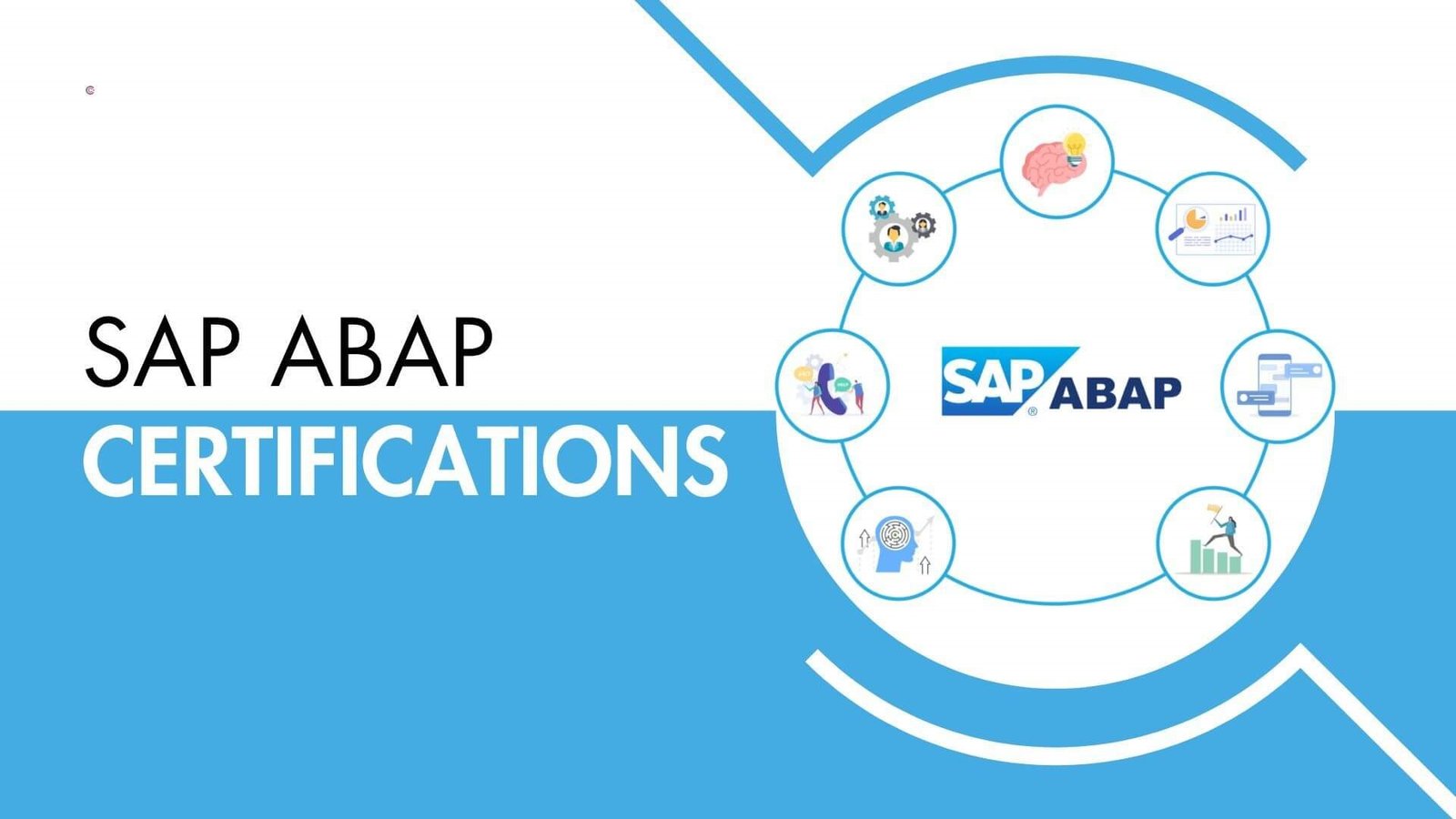What Can You Do with The ABAP Certification?
Introduction
ABAP (Advanced Business Application Programming) is the core programming language used to develop applications on the SAP platform. SAP offers ABAP certifications to validate a professional’s expertise in this critical skill set. Whether you are a beginner or an experienced developer, ABAP certification serves as an important credential, demonstrating your ability to build and optimize SAP solutions for complex business processes. The SAP ABAP Course covers a wide range of topics, from foundational coding skills to advanced SAP HANA integration. With this certification, you can open doors to various SAP-related roles and career paths in both technical and consulting capacities.
What is the ABAP Certification?
ABAP (Advanced Business Application Programming) certification is an official credential offered by SAP to validate a professional’s expertise in developing applications on the SAP platform using the ABAP programming language. This certification is designed for individuals who want to enhance their career in SAP development by demonstrating their proficiency in ABAP.
The certification primarily covers various aspects of ABAP programming, such as data types, operators, control structures, modularization, database access, and user interface development. It also includes advanced topics like Object-Oriented Programming (OOP) in ABAP, debugging, and performance tuning. Candidates are tested on their ability to write efficient and effective code for business processes in the SAP environment.
There are different levels of ABAP certification:
- SAP Certified Development Associate – ABAP with SAP NetWeaver: This is the entry-level certification, designed for beginners who want to validate their foundational knowledge of ABAP.
- SAP Certified Development Specialist – ABAP for SAP HANA: Focused on professionals who want to enhance their ABAP skills for developing applications on the SAP HANA platform.
- SAP Certified Development Professional – ABAP with SAP NetWeaver: This is an advanced certification for experienced developers.
By earning an ABAP certification, professionals can gain recognition and credibility, boosting their chances for roles like ABAP Developer, SAP Consultant, or Technical Architect. It can also open up opportunities in consulting firms or SAP partner companies.
What Can You Do with The ABAP Certification?
With an ABAP Certification, you can pursue various career opportunities in the SAP ecosystem, focusing on roles that involve designing, developing, and maintaining SAP-based applications using the ABAP programming language.
Here are some of the key opportunities available:
1. ABAP Developer
An ABAP Developer is responsible for creating custom reports, interfaces, and enhancements within the SAP system. Certified professionals can work on the development and modification of ABAP programs tailored to business requirements. This role involves tasks such as building and optimizing database structures, developing user interfaces, and implementing custom solutions to support business processes.
2. SAP Technical Consultant
As an SAP Technical Consultant, you’ll bridge the gap between business needs and SAP functionality. With an ABAP certification, you’ll be equipped to customize SAP applications by writing efficient ABAP code. This role involves collaborating with functional consultants to implement technical solutions, create detailed technical designs, and troubleshoot any issues that arise during implementation.
3. SAP HANA ABAP Developer
With a specialization in ABAP for SAP HANA, you can develop applications optimized for SAP’s memory database, SAP HANA. You’ll work on complex data modeling, performance tuning, and using advanced features of SAP HANA like Core Data Services (CDS) views and AMDP (ABAP Managed Database Procedures). This expertise is in demand as more organizations adopt SAP HANA for faster data processing.
4. Technical Architect
ABAP-certified professionals with experience can become Technical Architects, overseeing the overall technical landscape of SAP implementations. This role requires designing scalable and efficient systems, ensuring smooth integration of custom developments, and advising on the best practices for ABAP development.
5. Freelance SAP Consultant
If you prefer working independently, an ABAP certification can open freelancing opportunities. Many organizations look for freelance consultants to implement custom developments, provide upgrades, or perform system migrations, especially for short-term or specialized projects.
6. SAP Support and Maintenance Roles
In support roles, certified ABAP professionals provide technical assistance to ensure the smooth functioning of SAP systems. This involves debugging, troubleshooting performance issues, and enhancing existing SAP applications to meet changing business requirements.
By obtaining an ABAP certification, you demonstrate expertise in SAP’s core programming language, enhancing your employability and expanding your career options in various industries that use SAP systems. One can join the SAP Course in Delhi for the best learning experience.
Conclusion
To sum up, earning an ABAP certification significantly boosts your career potential within the SAP ecosystem. It equips you with specialized knowledge to design, develop, and maintain SAP applications, opening up opportunities in roles such as ABAP Developer, SAP Technical Consultant, and SAP HANA Specialist. Whether you’re working within an organization or freelancing, the certification validates your skills, making you a valuable asset for businesses using SAP. Additionally, it offers the flexibility to grow into advanced roles like Technical Architect or take on support and maintenance responsibilities, enhancing your long-term career growth in the SAP landscape.






